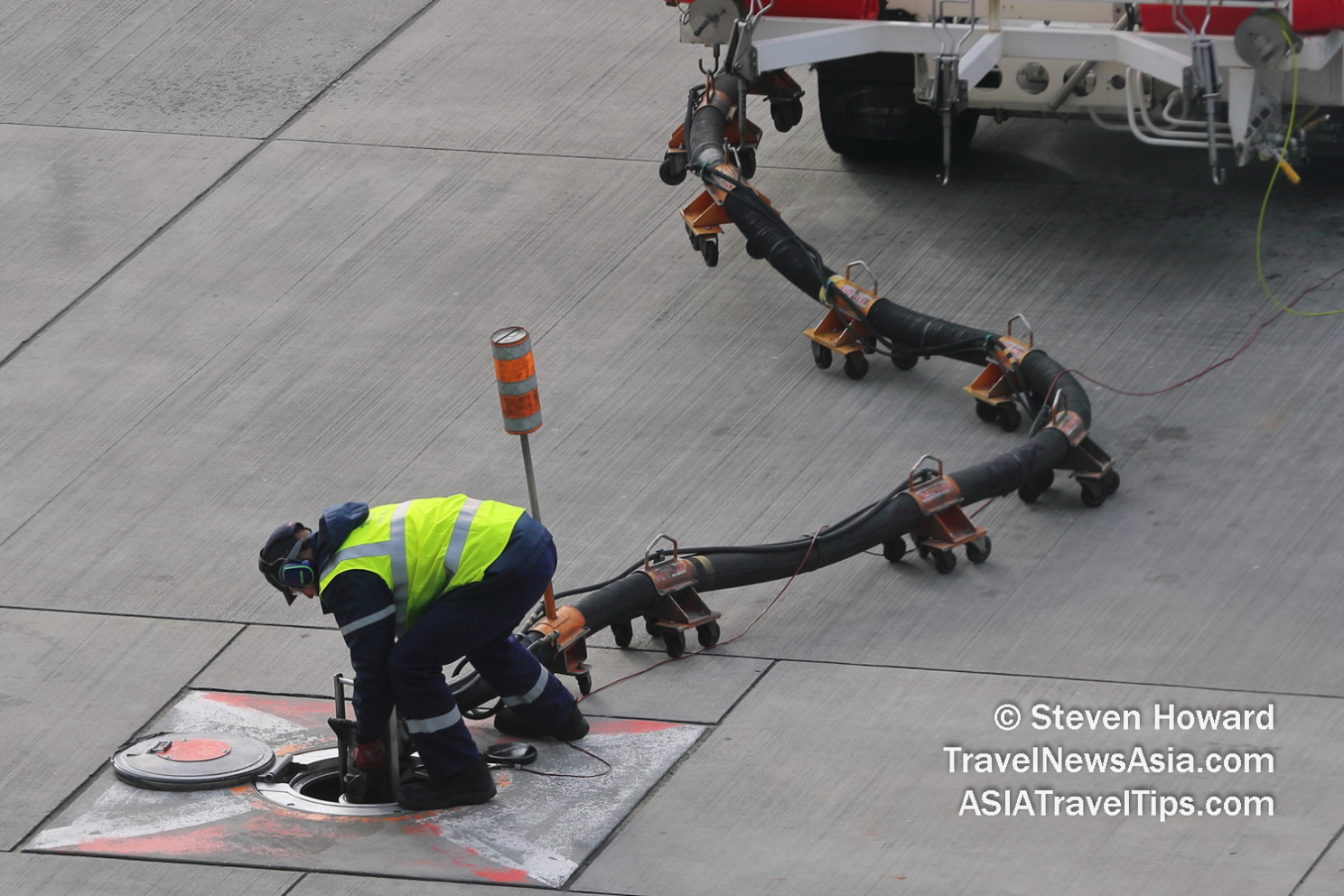|
(15 Mar 2022, 11:49 +07)
Qantas has unveiled a plan to tap into supplies
of sustainable aviation fuel (SAF) produced in California for its
flights from Los Angeles and San Francisco to Australia.
SAF produces up to 80% less emissions than
traditional jet kerosene and is compatible with existing aircraft.
Airlines around the world are increasing their use of SAF, with
demand outstripping supply in most jurisdictions.
US biofuels company Aemetis will supply almost 20
million litres of blended SAF each year for Qantas flights,
starting in 2025.
The sustainable fuel will be produced at Aemetis�
plant currently under development in Riverbank, California. It
will come from certified feedstock from waste products that is
then blended with normal jet fuel.

Refueling. Picture by Steven Howard of TravelNewsAsia.com
�Climate change is front of mind for Qantas, our
customers, employees and investors, and it is a key focus for us
as we move through our recovery from the pandemic,� said Qantas
Group CEO, Alan Joyce.
�Operating our aircraft with sustainable aviation fuel is the
single biggest thing we can do to directly reduce our emissions.
We�re actively looking to source sustainable aviation fuel for our
operations, and the deal we�re announcing today is hopefully one
of many we�ll make as the market catches up to demand globally. At
the moment we can only buy sustainable fuels offshore. The US, UK
and Europe have industries that have developed with a lot of
government support because this is a new field and the long term
benefits for those countries are obvious.�
This is Qantas� second major offshore purchase of
SAF with flights from London using a blend of sustainable fuel
since the start of this year.
Aiming to be net carbon neutral by 2050, Qantas is
also pursuing a number of additional deals to add more SAF in the
US and other international airports.
�Qantas has already committed $50 million to
support the development of a SAF industry in Australia, and we�d
be its biggest customer. As well as the environmental and economic
benefits, a local SAF industry would reduce the nation�s
dependence on imported fuels,� said Mr Joyce. �For now, SAF is
more expensive than traditional fossil fuels but with the right
investment it could grow to a scale where the cost is on par.�
The deal follows Qantas signing of an agreement with
oneworld partners last year to consider purchasing SAF from Aemetis for use out of Californian airports.
|
Headlines: |
|
|

